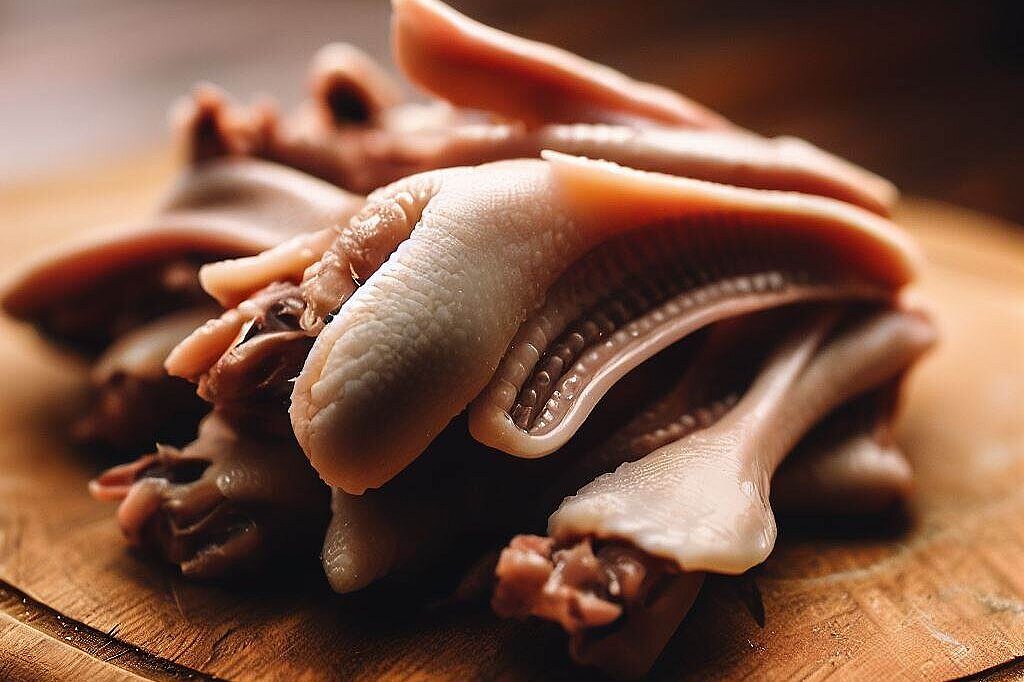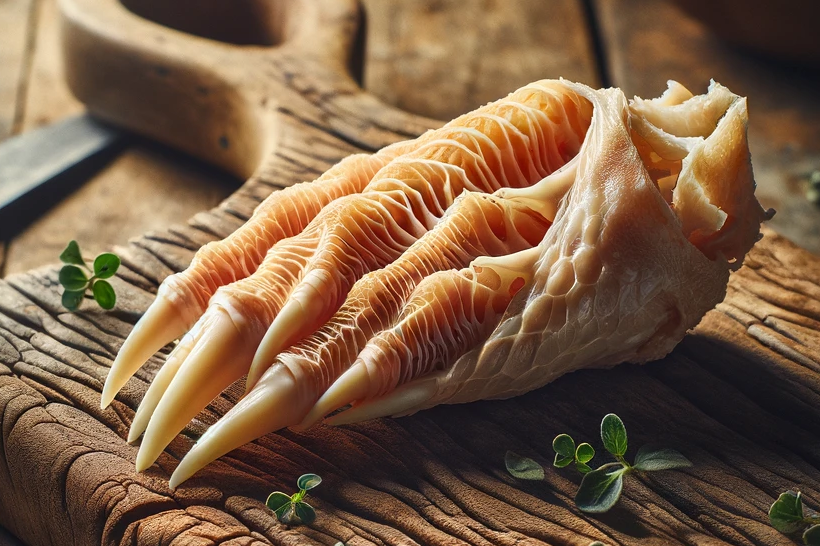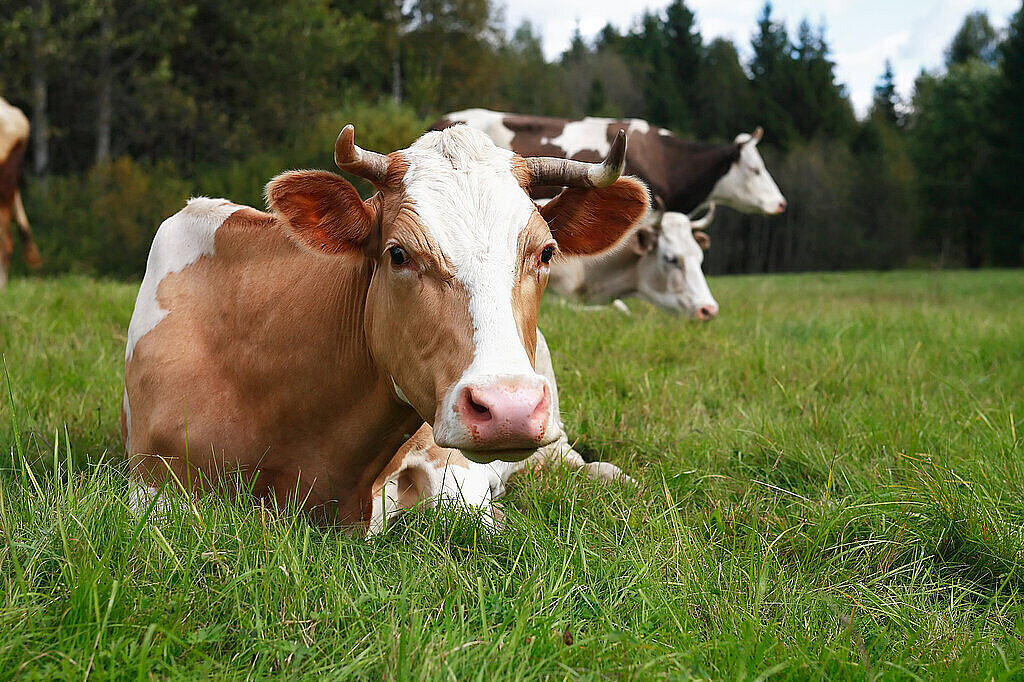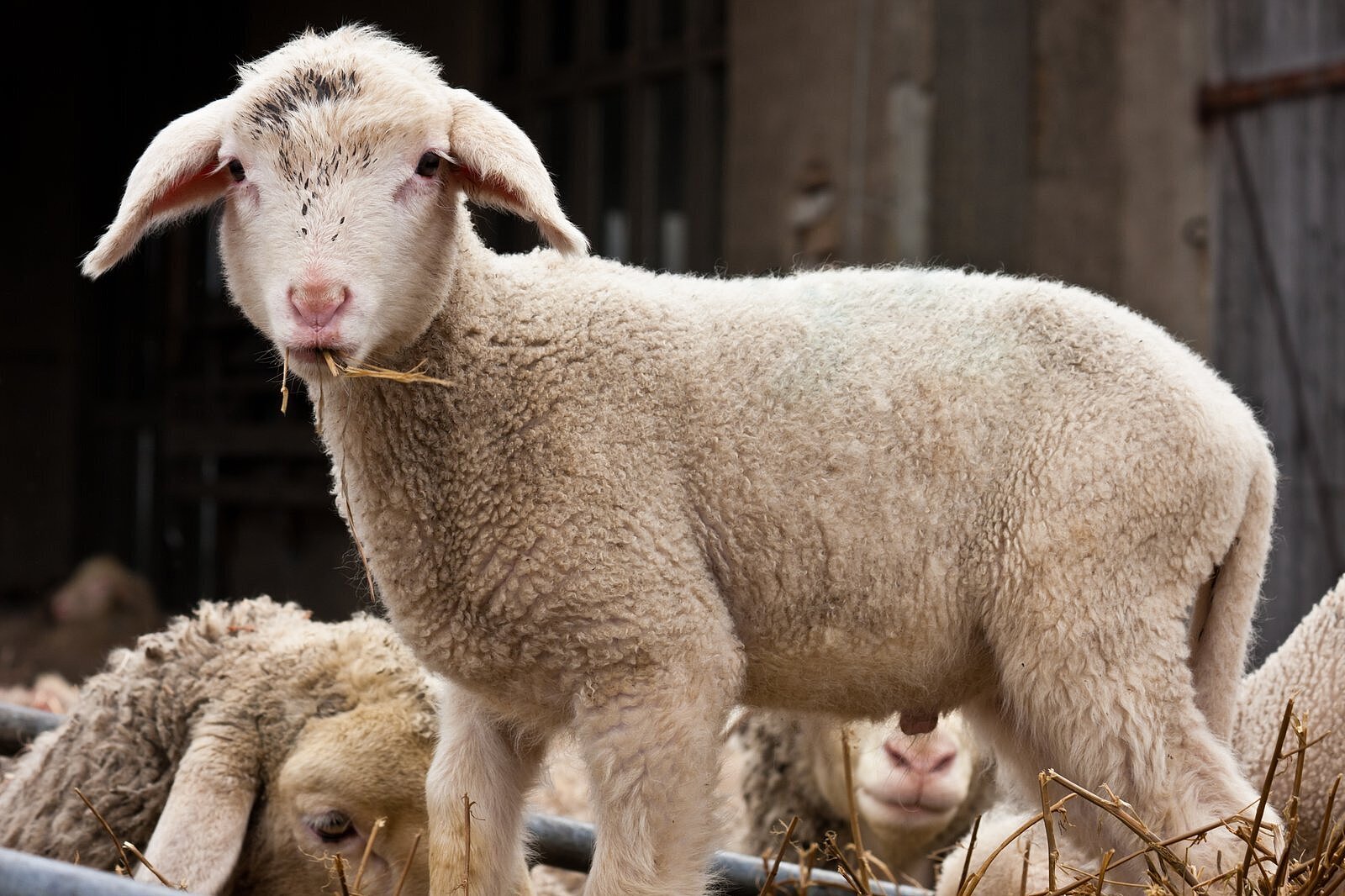Pork cartilage
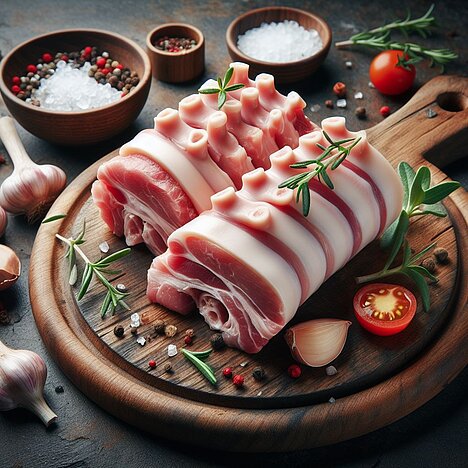
Pork cartilage is a popular snack for dogs that is often touted as healthy and natural. But what is pork cartilage and what are the advantages and disadvantages for your four-legged friend? In this article, you'll find out everything you need to know about pork cartilage for dogs.
What is pig cartilage?
Pig cartilage is the connective tissue that surrounds and protects the joints of pigs. It consists mainly of collagen, a protein responsible for the elasticity and strength of skin, hair, nails and cartilage. Pork cartilage also contains glycosaminoglycans, such as glucosamine and chondroitin, which are also important components of cartilage tissue.
Pork cartilage is often obtained as a by-product of meat processing and is processed into various products, such as dried chews or food supplements for dogs.
What are the benefits of pork cartilage for dogs?
Pork cartilage can have several benefits for your dog's health and well-being, such as
- It promotes chewing activity and tooth cleaning for your dog by reducing plaque and tartar.
- It provides valuable proteins and minerals, such as calcium, phosphorus and magnesium, which are important for bone formation and muscle function.
- It supports your dog's joint health by stimulating the formation of synovial fluid and inhibiting inflammation.
- It strengthens your dog's immune system by promoting the production of antibodies and fighting infections.
What are the disadvantages of pork cartilage for dogs?
Pork cartilage is not suitable for every dog and can also have some disadvantages or risks, such as
- It can cause digestive problems, such as diarrhea, constipation or bloating, especially if your dog eats too much of it or too quickly.
- It can cause allergic reactions, such as itching, skin rashes or breathing difficulties if your dog is sensitive to pork or other ingredients.
- It can lead to the transmission of pathogens, such as Aujeszky's disease or salmonella, if the pork cartilage has not been sufficiently heated or controlled.
- It can lead to injuries such as cuts in the mouth or throat or intestinal obstruction or perforation if the pork cartilage splinters or gets stuck.
How do you feed pork cartilage correctly?
If you want to give your dog pork cartilage, there are a few things you should keep in mind to maximize the benefits and minimize the disadvantages:
- Choose high-quality products from trusted sources that don't contain artificial additives or preservatives.
- Make sure the pork cartilage is the right size and amount for your dog. It should not be too small that it can be swallowed, but also not too large that it cannot be chewed. As a rule of thumb, the pork cartilage should be about the size of your dog's head.
- Supervise your dog when eating the pig cartilage and take it away if it becomes too small or starts to splinter.
- Feed the pork cartilage only as an occasional treat or supplement and not as the main food. It should not make up more than 10% of your dog's daily calorie intake.
- Always offer your dog fresh water when he eats pork cartilage to aid digestion and quench his thirst.
Pork cartilage can be a tasty and healthy snack for your dog if you choose and feed it correctly. It can promote chewing activity, tooth cleaning, joint health and your dog's immune system. However, it can also lead to digestive problems, allergic reactions, disease transmission or injury if you give it incorrectly or too often. Therefore, you should always pay attention to the quality, size, quantity and reaction of your dog when offering him pork cartilage.
If you notice any signs of hypersensitivity or poisoning in your dog, you should see your vet immediately. We are not a substitute for a vet, but we try to be as accurate as possible. Every dog reacts differently and we recommend you get a second opinion or consult your vet if in doubt.
Stay healthy and take good care of your four-legged friend!😊
Similar to Pork cartilage
Duck cartilage is the connective tissue that binds the bones of ducks together. It consists mainly of collagen, a protein responsible for the elasticity and strength of skin, hair, nails and joints....
Chicken cartilage is, as the name suggests, the cartilage from chickens, which is often a by-product of meat processing. Unlike bone, cartilage is softer and contains a variety of substances that...
Bovine cartilage is the connective tissue between the bones of cattle, which consists of collagen, proteins and water. It is very tough and elastic and has a high content of glucosamine and...
Lamb cartilage is the connective tissue that surrounds the bones of lambs. It consists mainly of collagen, a protein responsible for the elasticity and strength of the skin, joints and tendons. Lamb...
